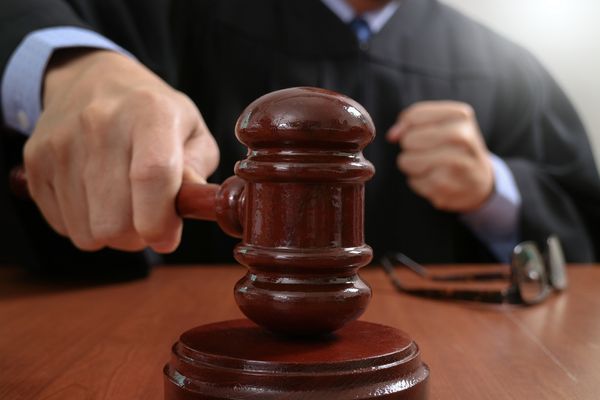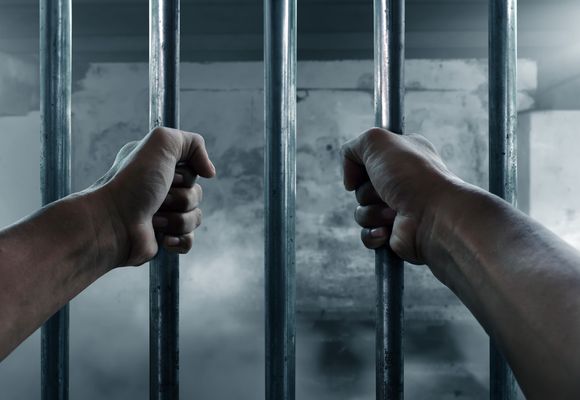10.3.3
Punishment
Theoretical Approaches to Punishment
Theoretical Approaches to Punishment
Functionalists and Marxists have different approaches to the purpose and aims of criminal punishment.


The Functionalist view
The Functionalist view
- Durkheim believed that punishment is ‘expressive’ as it heals the wounds of the public while also promoting the value consensus.
- In his view, traditional societies used ‘retributive justice’.
- This was simple, effective and often brutal.


Restitutive justice
Restitutive justice
- However, in modern societies have moved to using ‘restitutive justice’.
- Punishment must now restore a sense of equilibrium to society by ensuring that the community is healed from the damage of the offence that was committed.


The Marxist view
The Marxist view
- The role of punishment is to benefit capitalism through the imprisonment of the working classes.
- The criminal justice system use ‘selective law enforcement’ to protect the interests of the ruling class and therefore acts as a ‘repressive state apparatus’ by making the proletariat conform due to the fear of punishment.


Role of prisons
Role of prisons
- The role of prisons has changed over time.
- Garland discusses how prisons are being used as the main form of punishment in the USA and in the UK.
- Garland believes that prisons are now used by politicians to prove to the electorate that they are tough on crime, and as a result they will gain electoral popularity and win elections.
1Theory & Methods
1.1Sociological Theories
1.2Sociological Methods
2Education with Methods in Context
2.1Role & Function of the Education System
2.2Educational Achievement
2.3Relationships & Processes Within Schools
3Option 1: Culture & Identity
3.1Conceptions of Culture
3.2Identity & Socialisation
3.3Social Identity
3.4Production, Consumption & Globalisation
4Option 1: Families & Households
4.1Families & Households
4.2Changing Patterns
4.3The Symmetrical Family
4.4Children & Childhood
5Option 1: Health
5.1Social Constructions
5.2Social Distribution of Healthcare
5.3Provision & Access to Healthcare
5.4Mental Health
6Option 1: Work, Poverty & Welfare
6.1Poverty & Wealth
7Option 2: Beliefs in Society
7.1Ideology, Science & Religion
7.2Religious Movements
7.3Society & Religion
8Option 2: Global Development
8.1Development, Underdevelopment & Global Inequality
8.2Globalisation & Global Organisations
8.3Aid, Trade, Industrialisation, Urbanisation
9Option 2: The Media
9.1Contemporary Media
9.2Media Representations
10Crime & Deviance
10.1Crime & Society
10.2Social Distribution of Crime
Jump to other topics
1Theory & Methods
1.1Sociological Theories
1.2Sociological Methods
2Education with Methods in Context
2.1Role & Function of the Education System
2.2Educational Achievement
2.3Relationships & Processes Within Schools
3Option 1: Culture & Identity
3.1Conceptions of Culture
3.2Identity & Socialisation
3.3Social Identity
3.4Production, Consumption & Globalisation
4Option 1: Families & Households
4.1Families & Households
4.2Changing Patterns
4.3The Symmetrical Family
4.4Children & Childhood
5Option 1: Health
5.1Social Constructions
5.2Social Distribution of Healthcare
5.3Provision & Access to Healthcare
5.4Mental Health
6Option 1: Work, Poverty & Welfare
6.1Poverty & Wealth
7Option 2: Beliefs in Society
7.1Ideology, Science & Religion
7.2Religious Movements
7.3Society & Religion
8Option 2: Global Development
8.1Development, Underdevelopment & Global Inequality
8.2Globalisation & Global Organisations
8.3Aid, Trade, Industrialisation, Urbanisation
9Option 2: The Media
9.1Contemporary Media
9.2Media Representations
10Crime & Deviance
10.1Crime & Society
10.2Social Distribution of Crime
Unlock your full potential with Seneca Premium
Unlimited access to 10,000+ open-ended exam questions
Mini-mock exams based on your study history
Unlock 800+ premium courses & e-books